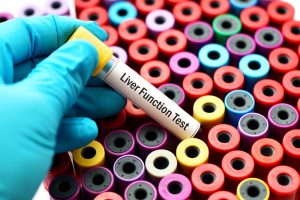Do you get conscious because of your teeth when photos are taken?
White teeth are a normal part of human physiology. We get excited watching advertisements depicting white shiny teeth with a sparkling smile, and after watching such advertisements we want to have white teeth too, but artificial whitening products are seldom effective. Furthermore, they may contain chemicals which may harm the teeth with prolonged use.
Why Do Teeth Get Discoloured?
Here are some reasons why teeth become discoloured:
- Genetics: The colour of our teeth depends on our parents, natural shades of teeth may include reddish brown, reddish yellow, grey, reddish grey or yellow. The thickness of enamel also varies from person to person.
- Age: Tooth enamel gets worn out as we age and develops a yellow tinge.
- Food and beverages: Some fruits and vegetables may alter teeth colour. Routinely consuming beverages like coffee or tea, and certain alcoholic beverages such as wine, or non-alcoholic drinks such as sodas may also affect the colour of teeth.
- Tobacco consumption: Chewing on or smoking tobacco may affect the colour of teeth.
- Diseases & treatment: Certain medical conditions such as dentinogenesis imperfecta causes tooth discolouration. Additionally, some medical treatments such as radiotherapy or chemotherapy may also cause teeth to become yellow.
- Medication: Medication such as certain antibiotics (tetracycline/doxycycline) or antihistamines cause teeth discolouration.
- Excess fluoride: Using too much fluoride may cause teeth to become yellow or brown.
- Injury: Physical trauma or injury to a tooth may damage its enamel and cause discolouration.
- Poor dental hygiene: Brushing inadequately or not flossing may result in the development of plaque which changes the colour of teeth.
Five Ways To Get Naturally Whiter Teeth
- Oral hygiene
Maintaining good oral hygiene is the foremost method of preventing tooth discolouration. Brushing and flossing regularly can also prevent the buildup of plaque. Regular visits to the dentist for dental scaling and polishing may help prevent discolouration. The American Dental Association (ADA) recommends brushing teeth two times a day with a soft bristle brush.
- Oil pulling
Oil pulling is a traditional method for maintaining oral hygiene and removing toxins from the body. It is an Indian tradition where oil is swished in the mouth to remove any bacteria that may turn into plaque. This should be done for 15-20 minutes before brushing or flossing the teeth. While any kind of oil may be used, coconut oil provides the added benefit of protecting from inflammation and bacterial attacks due to its lauric acid content.
- Brushing with baking soda & hydrogen peroxide
Baking soda is a mild abrasive which helps to remove teeth stains over a period of time. It contains natural whitening properties and due to its alkaline nature, it inhibits bacterial growth in the mouth preventing the buildup of plaque. Brushing teeth with toothpaste that contains baking soda may help whiten teeth if used regularly. Hydrogen peroxide is a natural bleaching agent that can also kill bacteria, it needs to be used at highly diluted concentrations. The most common formulation of hydrogen peroxide is as a toothpaste ingredient with baking soda, it can also be used as a mouthwash.
- Fruits and vegetables
Strawberries contain malic acid and help whiten teeth when mixed with baking soda. Pineapples contain an enzyme called bromelain, while papayas contain papain, both of which aid tooth whitening. Some traditional folklore may also suggest rubbing banana, orange or lemon peels above teeth to help with whitening as they contain citric acid.
- Lifestyle and dietary changes
Including fruits and vegetables in your diet is not only good for your health but also helps keep teeth free from plaque. Acidic food, coffee, wine, berries, and soda are known to stain teeth. One way to consume such food is to prevent its contact with the teeth by using straws or brushing it 30 minutes after consumption. An increased calcium intake, and limited sugar intake, may also lead to improved enamel health.













